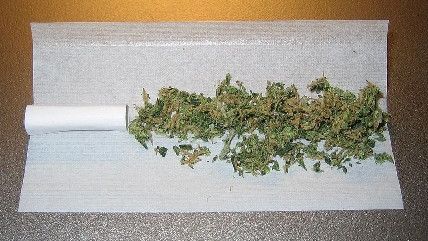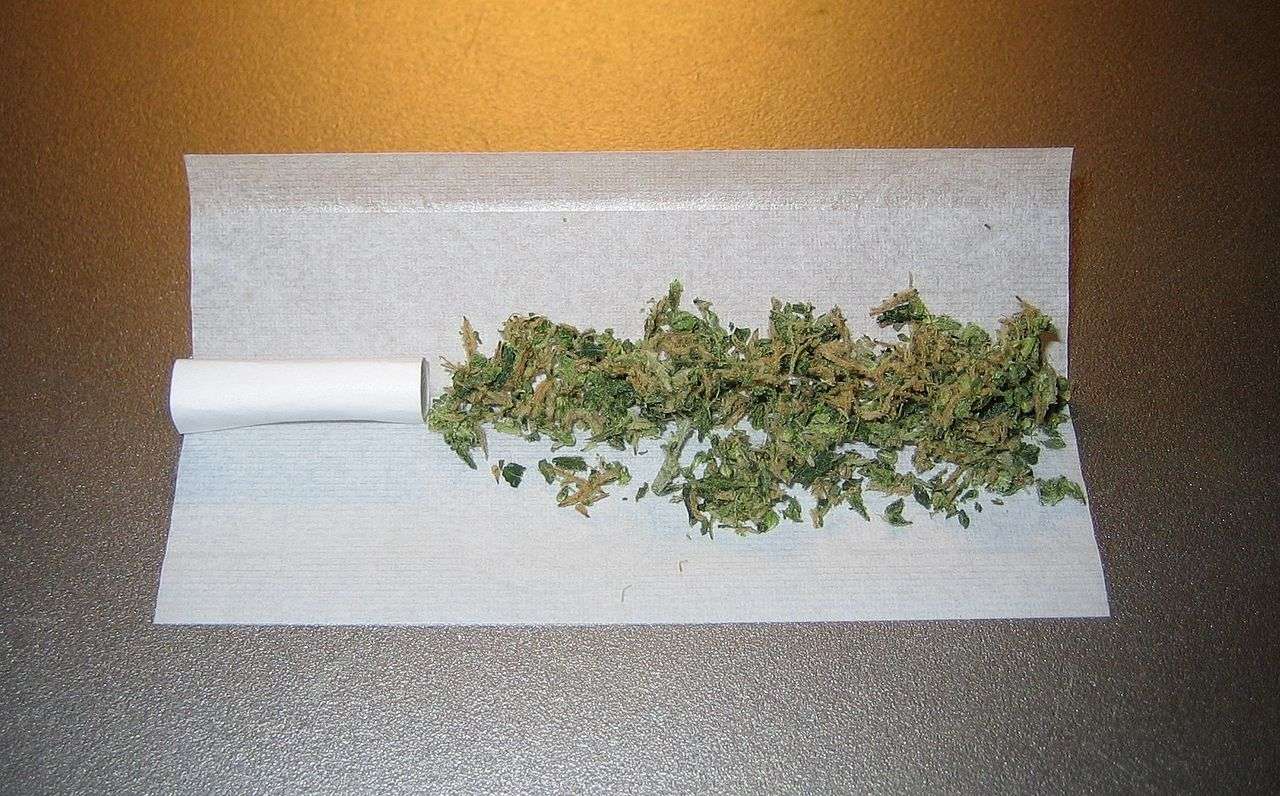Native American Oregon Teen Busted with One Gram of Marijuana Faces Federal Charges
The war on weed continues, even in a state where it's been legalized.


19-year-old Devontre Thomas of was busted at his Oregon boarding school for possessing one gram of marijuana, about the same amount pictured in the photo to the right, or as Leah Sottile of Willamette Week writes, "barely enough cannabis to dust the bottom of a Ziploc."
How is it possible that an adult in a state which voted to legalize recreational marijuana use — and which is set to host a cannabis competition at its upcoming state fair — could be facing a year in prison for a minuscule amount of weed?
The simple answer is that marijuana remains a Schedule I narcotic in the eyes of the federal government, which like heroin and cocaine is deemed by the Drug Enforcement Administration (DEA) to have "no currently accepted medical use and a high potential for abuse." Add to that the strange circumstance of the minimum legal age to possess marijuana in Oregon being 21, which makes Thomas an adult legal offender in the eyes of the law, even if he's infantilized by the age restriction.
The more complicated answer deals with the strange and less well-known conundrum of the legal jurisdictions on Indian reservations. Thomas' alleged indiscretion took place at the Chemawa Indian School, which is administered by the Bureau of Indian Education, which answers to (you guessed it) the federal government. And federal law calls for up to a year in prison and $1,000 in fines for the possession of any amount of marijuana.
Willamette Week writes that Thomas' predicament is a "poster case for how the nation's drug laws are still stacked against minorities—especially Native Americans" and quotes Portland-based lawyer Amy Margolis as saying, "There's absolutely racial disparity in how these cases are charged…[Thomas] had the bad luck of being where and who he was."
Thomas has refused to plead guilty, which in a great many situations for a young first-time offender would result in a deferred adjudication (meaning no conviction) and no permanent stain on his criminal record. But because the alleged crime is being prosecuted federally, copping a plea means Thomas forfeits any future government assistance, including housing and student loans.
As Mario Machado writes in the Mimesis Law blog:
So even if the federal judge is not inclined to send Thomas to prison as part of his punishment for having the temerity of possessing some demon weed, Thomas' plea can have some serious, irreversible, collateral consequences. Just like possession of an atom of any drug, 20 grams of weed can translate to a lifetime of banishment from this country for the undocumented. Thomas would have to bear the consequences of his plea well after he completed his sentence. This is not exaggeration, or unnecessarily amplifying the consequences of Thomas' conviction. We're only pointing out what's on the books and in store for Thomas well after he has completed his plea colloquy before the judge.
KGW-TV, which first broke the story, shared the U.S. Attorney's official charges against Thomas (filed over a year after the alleged offense took place in March 2015), which you can view below:


Show Comments (44)